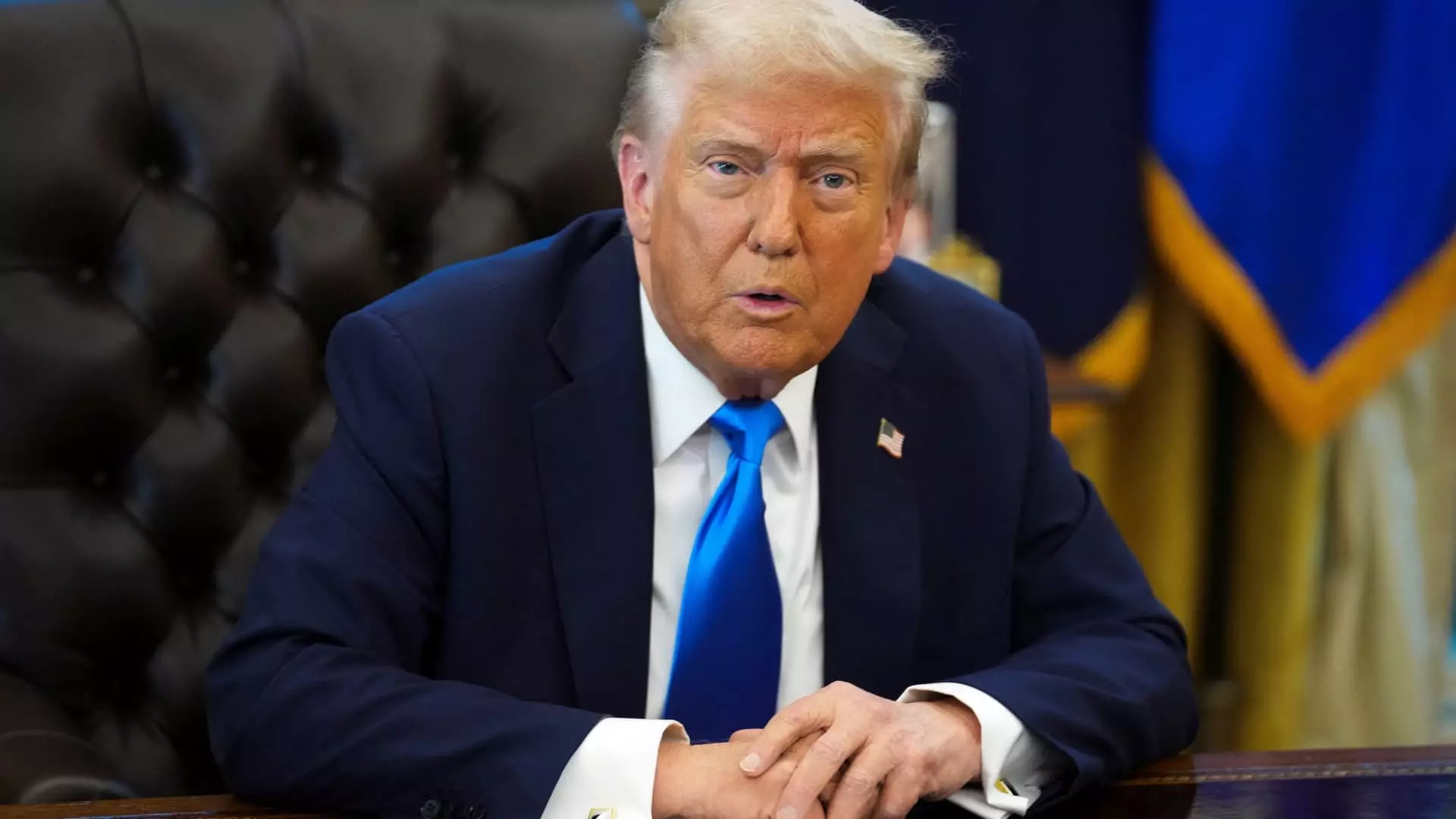The recent discourse surrounding TikTok’s potential sale to American interests underscores a troubling narrative: the conflation of corporate deals with national security and patriotism. President Trump’s assertion that figures like Lachlan Murdoch, Larry Ellison, and Michael Dell are “American patriots” actively involved in the TikTok deal is more rhetorical flourish than substantive commitment. It masks a deeper issue—whether these wealthy executives and media magnates are genuinely motivated by the public good or simply opportunistically leveraging a crisis to safeguard their financial interests. This supposed coalition of “patriots” might just be a showcase of elite influence rather than a meaningful attempt to address the real concerns about data privacy, foreign influence, and technological sovereignty.
The mention of Murdoch’s role, for instance, seems more like a political spectacle than an earnest effort for national security. While Trump hints that Fox Corporation could be involved, a person familiar with the deal suggests Murdoch’s influence is more indirect. Nonetheless, framing these corporate figures as champions of American values serves to deflect criticism from deeper systemic flaws—namely, the unchecked power of a handful of billionaires shaping policy under the guise of patriotism. It raises questions: are these individuals genuinely committed to protecting U.S. interests, or are they simply capitalizing on fears to consolidate their influence in an increasingly digital and geopolitically charged landscape?
Illusory Sovereignty and the Power of Big Tech
The proposed deal’s emphasis on “American control” over TikTok’s algorithm and data protection, while seemingly reassuring, is a superficial fix. The White House’s assurances that an American-controlled board and data oversight by Oracle do not necessarily guarantee true sovereignty over the platform’s global operations or influence. The heavy reliance on corporate giants like Oracle, which have their own complex ties to the U.S. government and military-industrial networks, questions the sincerity of these security claims.
Moreover, the notion that such negotiations resolve deeper issues of data privacy and foreign interference is optimistic at best. The platform remains owned by ByteDance, a Chinese company operating under a different legal and political system that prioritizes state interests. The so-called “deal” is more of a political fudge—designed to placate fears and appease nationalists—rather than a genuine solution. It perpetuates the illusion that technological sovereignty can be achieved through corporate restructuring, when in reality, the influence of global capitalism and technological giants vastly diminishes genuine national control.
Geopolitical Puppetry and Hypocrisy
The diplomatic dance between Trump and Xi Jinping adds a layer of theatricality to this supposed crisis. While Trump claims the deal is “well on its way” after discussions with China’s leader, China’s official stance emphasizes mutual respect for market rules—an obvious nod to the reality that Chinese tech companies operate under state influence, often with less transparency and accountability. The Chinese government’s statement about the importance of a “market-based” approach is both a diplomatic gesture and an acknowledgment of its strategic thawing with the U.S., even as tensions simmer beneath the surface.
This back-and-forth reveals a critical flaw: the U.S. seems more intent on maintaining face and protecting corporate interests rather than genuinely addressing the core security fears. The narrative that China seeks a “fair” negotiation glosses over the fact that global power dynamics are fundamentally asymmetric. U.S. policy is boilerplate—opposing China’s tech ambitions as a threat—while failing to recognize that American dominance itself is built on the same grounds of surveillance capitalism, corporate concentration, and geopolitical maneuvering.
The Mirage of Democratic Control
Finally, the focus on creating an “American-controlled” TikTok with a board comprised of U.S. citizens is a hollow gesture. It implies a semblance of democratic oversight, but in practice, the power remains concentrated in the hands of a few corporate elites and politicians who are beholden to corporate interests. This illusion of control distracts from the reality that digital sovereignty cannot be achieved through mere corporate boards or algorithm oversight—especially when the underlying infrastructure and data flows are rooted in a system that prioritizes profit over privacy, security, or democratic accountability.
The attempt to portray this as a victory of American patriotism over foreign threats is not only naive but also dangerous. It obscures the broader reality: that in a hyperconnected world, national boundaries are increasingly porous and economic interests override genuine security concerns. Far from defending democracy and the public, these negotiations seem to serve the interests of a globalized elite that seeks to preserve its dominance under the pretense of national security.


Leave a Reply